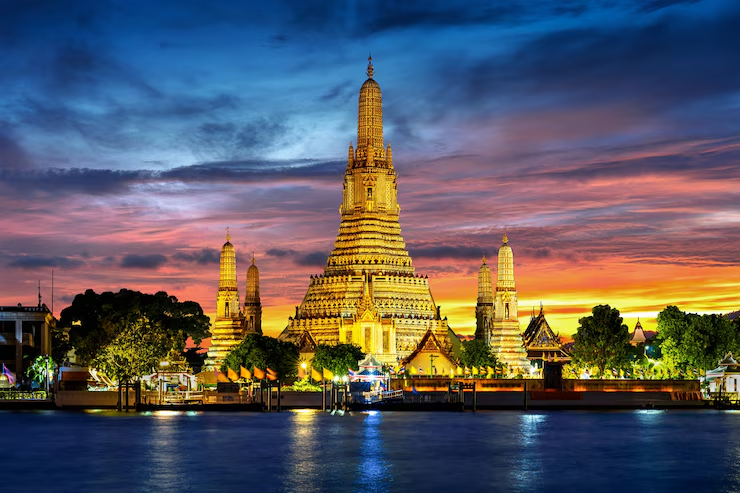Gambling has long held a fascinating and complex role within Thai culture. While official laws and societal norms often lean towards restriction, gambling remains deeply woven into the cultural and social fabric of Thailand. From traditional games tied to religious festivals to the influence of modern online platforms, gambling in Thailand is both a historical and evolving phenomenon.
In this article, we’ll take an in-depth look at the cultural significance of gambling in Thailand, its legal landscape, and how it continues to shape contemporary practices. Platforms like Ufabet exemplify the growing shift toward online gambling, mirroring global trends while catering to a uniquely Thai audience.
The Historical Roots of Gambling in Thailand
Gambling in Thailand dates back centuries, closely tied to its social and economic history. During the Ayutthaya period (1351-1767), gambling was widespread, with various games popular among both the elite and common people. The introduction of foreign games through trade and colonization added to the diversity of gambling options, blending seamlessly with local customs.
One of the most notable historical gambling practices involved cockfighting. This activity, deeply entrenched in Thai rural life, was not merely a pastime but also a social event that brought communities together. It still holds significance today, especially in rural areas, reflecting a blend of tradition and entertainment.
Another ancient gambling practice was lottery-based, introduced as a government-sanctioned activity to stimulate economic growth. The Thai lottery remains one of the few legal forms of gambling and is embraced by millions of people, highlighting its enduring relevance in Thai culture.
Gambling and Thai Social Norms
Despite its historical roots, gambling occupies a paradoxical space in Thai society. On one hand, it’s an undeniable part of the cultural landscape, while on the other, it’s viewed with suspicion and often stigmatized. The influence of Buddhism plays a critical role here.
Buddhism, Thailand’s dominant religion, discourages gambling as it is seen as a source of greed and attachment—qualities that go against Buddhist teachings. For many Thais, this creates an internal conflict: while gambling is often seen as entertaining and even lucky, it is simultaneously considered a moral lapse.
Interestingly, this dichotomy is evident in how gambling integrates with religious festivals. Games of chance are frequently organized during temple fairs to raise funds, blurring the line between religious and recreational activities. This fusion of gambling with spirituality reveals how deeply it is embedded in Thai traditions.
The Legal Landscape of Gambling in Thailand
Thai gambling laws are some of the strictest in Southeast Asia. The Gambling Act of 1935 prohibits most forms of gambling, with the exception of the government lottery and horse racing. Violations can lead to significant fines and even imprisonment.
However, enforcement of these laws varies, creating a grey area that allows underground gambling dens to thrive. Informal lotteries, card games, and other forms of unregulated gambling are commonplace, particularly in urban centers like Bangkok.
This legal ambiguity has driven many Thais to seek alternatives online. Platforms like Ufabet have gained popularity by offering a wide range of betting options, from sports to casino games, in a regulated and user-friendly environment. This shift illustrates how modern technology is transforming the gambling landscape while sidestepping traditional restrictions.
Modern Gambling Practices in Thailand
1. The Popularity of the Thai Lottery
The Thai Government Lottery, held twice a month, is the most popular form of legal gambling. It transcends age, class, and occupation, making it a unifying cultural phenomenon. Many Thais believe in seeking “lucky numbers” through rituals, dreams, and even superstitions involving animals or natural phenomena.
The social aspect of lottery gambling is also significant. Vendors selling tickets often establish strong relationships with their buyers, creating a sense of community around what is otherwise a state-run activity.
2. Underground Gambling
Despite its risks, underground gambling continues to flourish. Poker, card games, and dice games are common in clandestine setups. These gatherings often foster a sense of camaraderie among participants, despite their illegality.
The existence of these underground networks highlights the adaptability of Thai society in navigating strict regulations while preserving the cultural significance of gambling.
3. The Rise of Online Gambling
The digital age has ushered in a new era of gambling in Thailand. Online platforms, including sports betting sites like Ufabet, have become increasingly popular, especially among younger generations. These platforms offer convenience, anonymity, and a wide range of options that traditional gambling cannot match.
While the Thai government has made efforts to curb online gambling, the demand continues to grow. The accessibility of smartphones and the internet has made online gambling an integral part of modern Thai culture, reflecting global trends while catering to local preferences.
Cultural Impacts of Gambling
Gambling’s influence on Thai culture extends beyond entertainment. It shapes social interactions, rituals, and even language. Phrases and idioms derived from gambling terminology are common in everyday conversation, underscoring its cultural resonance.
Moreover, gambling often serves as a microcosm of broader societal dynamics. It reflects the interplay between tradition and modernity, legality and morality, and community and individuality. For example, the integration of gambling into religious festivals demonstrates how tradition can adapt to contemporary realities.
Challenges and Opportunities
The Challenges
The cultural acceptance of gambling in Thailand does not come without consequences. Problem gambling is a significant issue, particularly among vulnerable populations. The lack of regulated options often leaves gamblers exposed to exploitation and fraud in underground settings.
Additionally, the stigma associated with gambling creates barriers to seeking help for addiction, perpetuating a cycle of harm.
The Opportunities
On the flip side, gambling presents opportunities for cultural preservation and economic growth. Traditional games like cockfighting or takraw betting (a sepak takraw variation) could be formalized and promoted as part of Thailand’s cultural heritage.
Online platforms like Ufabet have the potential to bridge the gap between tradition and innovation, offering a regulated environment that caters to modern preferences while respecting cultural values.
The Way Forward
As Thailand grapples with its gambling paradox, finding a balanced approach is crucial. Stricter regulation and better education about responsible gambling can mitigate harm, while cultural preservation efforts can celebrate the traditional aspects of gambling.
Additionally, embracing technological advancements in the gambling industry could open up new avenues for economic growth, provided they are aligned with ethical and legal standards.
Conclusion
Gambling in Thailand is more than a pastime; it’s a reflection of the country’s history, culture, and societal values. From its historical roots in cockfighting and lotteries to its modern evolution through platforms like Ufabet, gambling remains a deeply embedded and multifaceted aspect of Thai life.
While challenges such as addiction and legal ambiguity persist, there are opportunities to reimagine the role of gambling in Thai society. By striking a balance between tradition and innovation, Thailand can preserve its cultural heritage while adapting to the demands of a rapidly changing world.
In the end, understanding the cultural aspects of gambling in Thailand requires not just a glance at its practices but also a recognition of the values, beliefs, and contradictions that make it uniquely Thai.





